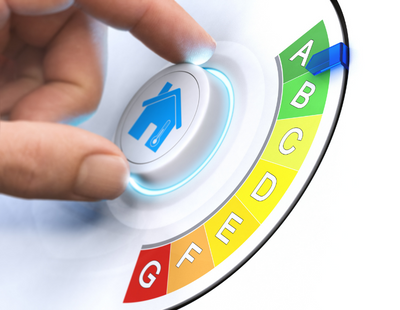A statement from RICS says: “This new standard has been developed by a team of experts as a response to a demand for high quality, residential retrofit advice, spurred on by increasingly high energy prices and UK government net-zero targets, and will provide a framework within which RICS members can advise their customers on retrofit options in homes across the UK, in turn supporting the nationwide effort to decarbonise the residential property sector.”
The standard is also supposed to ensure that consumers receive advice from skilled, regulated professionals and ultimately protects the public interest by upholding high standards in a growing market. It is intended to be applied and understood across the UK residential sector and is the only one of its kind designed to support surveyors and provide assurance to both consumers and lenders.
When survey respondents were asked if they had seen greater interest from buyers in homes that are more energy efficient, 39% said they had noticed an increase in demand, which is an increase on the 34% when this question was asked in June 2023.
On the same basis, 43% stated that sellers were looking to attach a premium to homes that are more energy efficient (42% last time). 26% reported seeing buyers highlight poor energy efficiency as a reason for making an offer below asking price (23% previously) and 37% said that higher energy efficient homes were holding their value in the current market.
Paul Bagust, RICS Head of Property Practice, commented: “As homeowners increasingly look to explore ways to retrofit their homes to improve energy performance, it is critical that advice is given by a highly qualified professional.
“It is clear … that there is a market need for a standard that facilitates quality, reliability and consistency, and the RICS Retrofit Standard does just that. This fully comprehensive standard will be rigorously upheld by RICS and has been designed to be used and understood by a broad range of professionals in the industry. We are asking for the recommendations in the standard to be implemented by 31 October 2024”.
Meanwhile in a separate development, the number of heat pump installations by December 2023 was less than half of planned projections according to a new National Audit Office report.
Home heating represents 18% of UK greenhouse gas emissions and the government sees heat pumps as the main technology to decarbonise the UK’s 28 million homes over the next decade.
The government wants to see 600,000 heat pumps installed per year by 2028 – an eleven-fold increase on 55,000 heat pump sales in 2022. By 2035, government wants to see up to 1.6 million heat pumps being installed annually.
But the independent public spending watchdog says the government’s assumptions about levels of consumer demand and manufacturer supply are optimistic. The government’s flagship Boiler Upgrade Scheme has also underperformed, installing just 18,900 heat pumps between May 2022 and December 2023. The government had expected the scheme would deliver 50,000 installations by this point.
A key issue behind lower-than-expected heat pump uptake is their cost to use and install. The government delayed its planned work to reduce running costs, by rebalancing gas and electricity prices, for example by moving some levies and charges from electricity to gas bills: it says that price rebalancing remains an essential policy but is challenging. Heat pump installation costs also fell more slowly than the government hoped.
The NAO also found that the Department for Energy Security and Net Zero (DESNZ) has no overarching long-term plan to address the low levels of awareness among households about the steps required to decarbonise home heating.
In response to the Boiler Upgrade Scheme’s underperformance, DESNZ increased the grant available to people replacing boilers from £5,000–£6,000 to £7,500, which has enabled some energy suppliers to offer heat pump installations starting at £500. Applications to the scheme in January 2024 increased by nearly 40% compared with January 2023, though more data is required to determine whether the change is sustained.
DESNZ is considering what role hydrogen will play in decarbonising home heating. The department has so far indicated that it will have a limited role, but it will formally take a decision in 2026.
